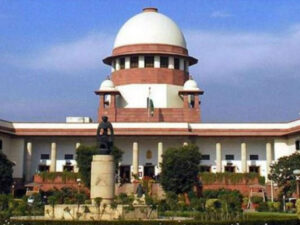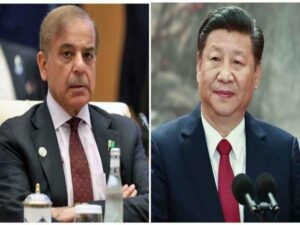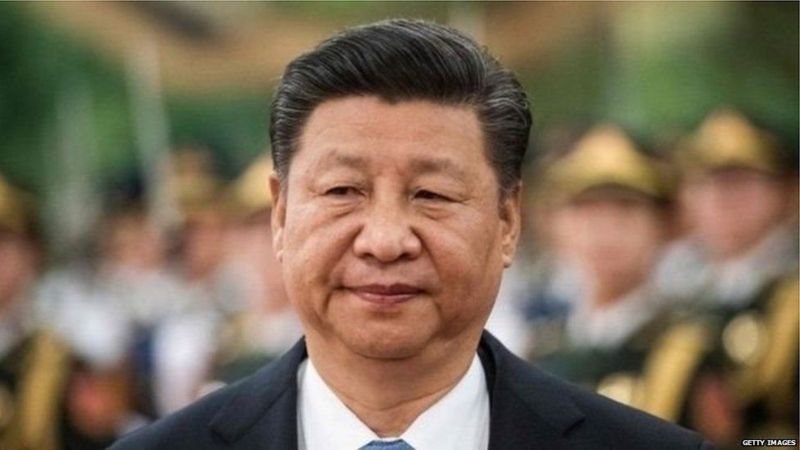
Indian Prime Minister Narendra Modi had gone to New York to address the United Nations General Assembly after a long gap in September this year after the second wave of Kovid slowed down. But Chinese President Xi Jinping did not go.
Right now the G-20 conference is going on in Rome, Italy and the Chinese President did not even go there. The meeting of BRICS was to be held in India this time but that too was virtual. The Chinese President did not go to Dushanbe even in the SACO meeting. It is not only Xi Jinping who did this, but Russian President Vladimir Putin himself also did not attend these meetings.
At the G20 summit in Rome, Italy’s capital, many world leaders are discussing issues such as climate change, global tax rates, supply disruptions and global vaccination.
But, in the meantime, the discussion is also about those leaders who are neither present in the G20 summit nor are going to participate in the Climate Change Conference (COP26) to be held in Glasgow.
These global leaders are Chinese President Xi Jinping, Russian President Vladimir Putin and Japan’s Prime Minister Fumio Kishida and Mexico’s President Andres Manuel López Obrador.
The most discussed among these leaders is about the absence of Chinese President Xi Jinping. Issues such as China’s role in reducing carbon emissions at the climate change conference and confrontation with the US add to the Chinese president’s absence.
Xi Jinping is not attending the G20 summit at a time when there is tension in China’s relations with the countries involved. China’s relations with the US and Australia are in a bad phase and problems with the UK, Canada and European countries remain.
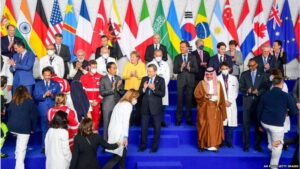
- Foreign tours have stayed for 21 months
The matter is not limited only to the G20 conference and COP26, but the foreign visits of the Chinese President have seen a lot less compared to the earlier. Xi Jinping has not gone out of China for the last 21 months. The American newspaper New York Times has also published a report about it.
The reason for this is being told due to the corona virus epidemic. However, this is not explicitly stated. It is also being considered a sign of major changes in China’s foreign and domestic policy.
But, what could be the effect of the absence of the supreme leader of a country aspiring to be a global leader in foreign forums? After all, how is China serving its diplomatic interests?
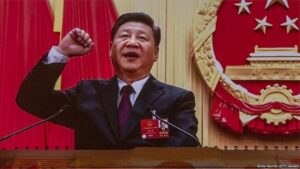
- Disadvantages of trying to be a global leader
China’s relations with the US and its allies are not in good shape. To reduce the dominance of China, America has formed groups like Quad and Ocus, about which China has been raising objections.
In such a situation, under the leadership of Xi Jinping, China does not seem willing to cooperate much with America and its allies.
Experts believe that the absence of Xi Jinping from global forums has also hurt his efforts to be an alternative to America as a global leader. This has also had an impact on China’s relations with many countries.
Whether Xi Jinping’s health or internal politics, China’s focus remains more on internal issues. This includes the meeting of the Communist Party to be held next year, in which Xi Jinping can be elected the leader of the country for the next five years.
In such a situation, diplomatic relations formed by meeting leaders face-to-face are not as priority as they were in the first year of Xi Jinping’s term.
A year ago, China made concessions to an investment deal with the European Union to complete a deal stalled by political sanctions. America’s troubles increased due to this move.
However, after this China did not accept the invitation of Xi Jinping to meet with European leaders in Europe.
Helena Lagarda, senior analyst at the Mercator Institute of China Studies in Berlin, told The New York Times, “This approach from China will reduce the chances of meeting leaders at the top level. In-person meetings often lead to difficulties in reaching an agreement.” Or prove to be effective in reducing tension in relationships.
The absence of Xi Jinping in Rome and Glasgow will also affect progress made on issues such as preparedness to come out of the Corona epidemic and the fight against climate change.
At the same time, US President Joe Biden had expressed his desire to meet Xi Jinping separately on issues like climate change, keeping the issues of tension with China aside. Although both the leaders have agreed for the virtual summit by the end of this year but no date has been announced.
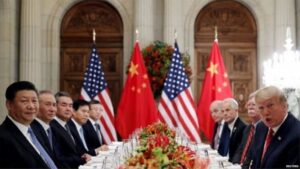
- Guardians of the multinational system and closed borders
Five years ago at the meeting of the Global Economic Forum in Davos, Xi Jinping presented himself as the custodian of the multinational order. Whereas former US President Donald Trump emphasized the policy of ‘America First’.
But, experts believe that by keeping its borders closed, especially due to covid-19, China cannot play such a role at the global level. Strict rules have been made regarding the entry of foreign travelers into China.
The New York Times wrote, the problem is also that if Xi Jinping goes out of China, he will also have to follow China’s Covid rules when he comes back, otherwise he may have to face criticism for keeping himself above the rules.
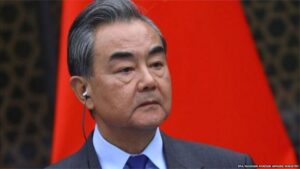
- China’s phone diplomacy
Even though President Xi Jinping is not going out of the country, but China has not given up efforts to improve diplomatic relations.
China has played an important role with Russia and Pakistan in negotiations with the Taliban. He still appears to be active in relations with the Taliban.
President Jinping has held several conference calls with European leaders, including German Chancellor Angela Merkel and French President Emmanuel Macron and British Prime Minister Boris Johnson.
Chinese Foreign Minister Wang Yi is present at the G20 summit and Xi Jinipang also addressed the conference via video.
The South China Morning Post quoted an EU official as saying that he does not think that Xi Jinping’s absence will affect the possibility of agreements on issues such as coal use, vaccine distribution, global corporate taxes and rising energy prices. .
“An excellent team has been sent for talks with both China and Russia. They are very active, have come up with many proposals and are actively participating,” the official said.
Before joining the G20 summit, Chinese Foreign Minister Wang Yi had informed that President Xi Jinping would attend the G20 summit via video link. He himself will attend the conference as a special representative of the Chinese President.
Wang Yi said about China’s expectations from the G20 summit, “As the primary forum for international economic cooperation, the G20 should adhere to multilateralism and maintain the spirit of solidarity and cooperation.” China stands ready to work with all parties for a successful Rome summit as soon as possible to achieve a global victory over COVID-19 and contribute to the balanced recovery and development of the global economy.
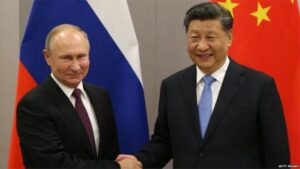
- Many foreign rounds before Corona
Talking about Xi Jinping’s foreign tours, before the Corona epidemic, the situation was completely different. He had also left behind former US President Barack Obama and Donald Trump in terms of foreign tours.
In the years before Covid, Xi Jinping traveled to 14 countries annually and spent an average of 34 days abroad, compared to 25 days for Barack Obama and 23 for Donald Trump. Xi Jinping visited Myanmar in January 2020 before the lockdown in Wuhan.
However, now many countries have started relaxing the rules regarding Covid-19 and a large population has been vaccinated. Now it remains to be seen how much importance Xi Jinping attaches to foreign visits and what role he will play at the global level when the Covid rules are softened in China in the coming times.

